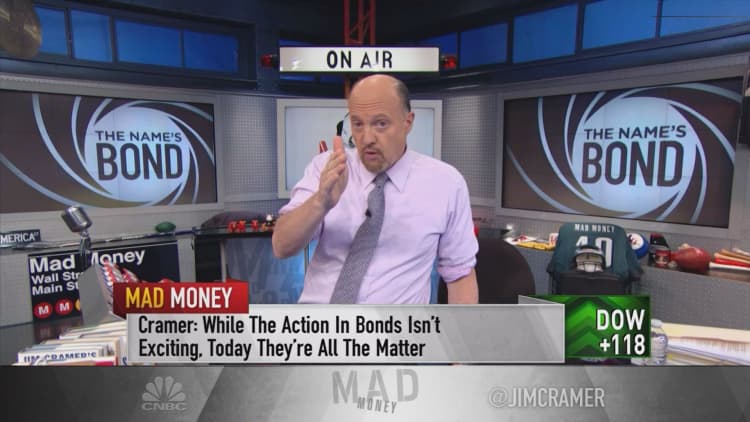
In recent years, Treasury market volatility has come in the form of "tantrums" wrought by the Federal Reserve or other central banks.
Now, that volatility could be spurred by the Trump administration. Hawkish foreign policy positions, coupled with looser domestic regulation, could create an avalanche of selling from two of the biggest Treasury buyers: big U.S. banks and China.
Since the financial crisis, banks have been stockpiling Treasurys because they qualify as "safe" assets that count toward required regulatory capital levels. U.S. commercial banks now hold $2.4 trillion in government debt and agency securities, more than double the total from nine years ago, according to the St. Louis Fed.
But House Republicans — with the support of the administration — are pushing to roll back parts of the Dodd-Frank regulations that were put in place after the 2008 financial crisis. That means banks could get a reprieve from those capital level requirements, and they could reduce their Treasury holdings as a result.
In a report, RBC managing director and banking analyst Gerard Cassidy calculates the 24 largest bank holding companies already hold $100 billion in excess capital, with Citigroup and JPMorgan Chase having the highest dollar amount. As regulation eases, the capital that was once used as a large cushion against a future recession could be funneled into stock buybacks.
Those Treasury-heavy portfolios "will certainly be the source of cash to use to buy back stock," Cassidy wrote in an e-mail to CNBC.
Banks have already been slowly selling off the debt, which causes yields to rise. Between the middle of 2013 and 2014, Bank of America's holdings of U.S. Treasurys grew from $2.9 billion to $58 billion. At the end of 2016, that figure had dropped to $48 billion, according to the bank's earnings. Wells Fargo's $26 billion Treasury balance in September is down nearly 30 percent from a year ago.
Not all banks break out the specific balance, but the totals as of the third quarter of 2016 range from $23 billion (Morgan Stanley) to $111 billion (Citigroup).
The bigger risk: China
But banks are just one source of possible selling en masse.
China is a creditor of a different magnitude: The country held $1.05 trillion in Treasurys as of November, down by $215 billion from a year earlier. It dumped $41 billion in U.S. debt in October alone, a move that relinquished its ranking as the largest foreign creditor to the United States.
One reason for the country selling U.S. debt previously was its need to raise cash to prop up its currency, the yuan, after years of seeking to devalue it to make its exports more attractive. Its intervention in the currency markets led President Donald Trump, while campaigning, to label China a currency manipulator and threaten a 45 percent tariff on products made in China but sold in the United States.
Goldman Sachs senior political economist Alec Phillips writes that if the White House pursues a unilateral policy on tariffs on Chinese products, one possible avenue for China to retaliate would be to dump even more U.S. Treasurys.
"China would retaliate swiftly against even a slight increase in tariffs," according to the report, citing Tu Xinquan, dean of the China Institute for WTO Studies at the University of International Business and Economics in Beijing.
Now it appears the administration may take a broader approach to foreign currencies. According to The Wall Street Journal, the Commerce Department could pursue a blanket policy against currency manipulation by any country in an effort to avoid singling out China and keep the relationship intact.
But if a creditor of that magnitude is angered, the Treasury market could be the first place it looks to send a message back to the United States.
— CNBC's Stephanie Dhue contributed to this report.


